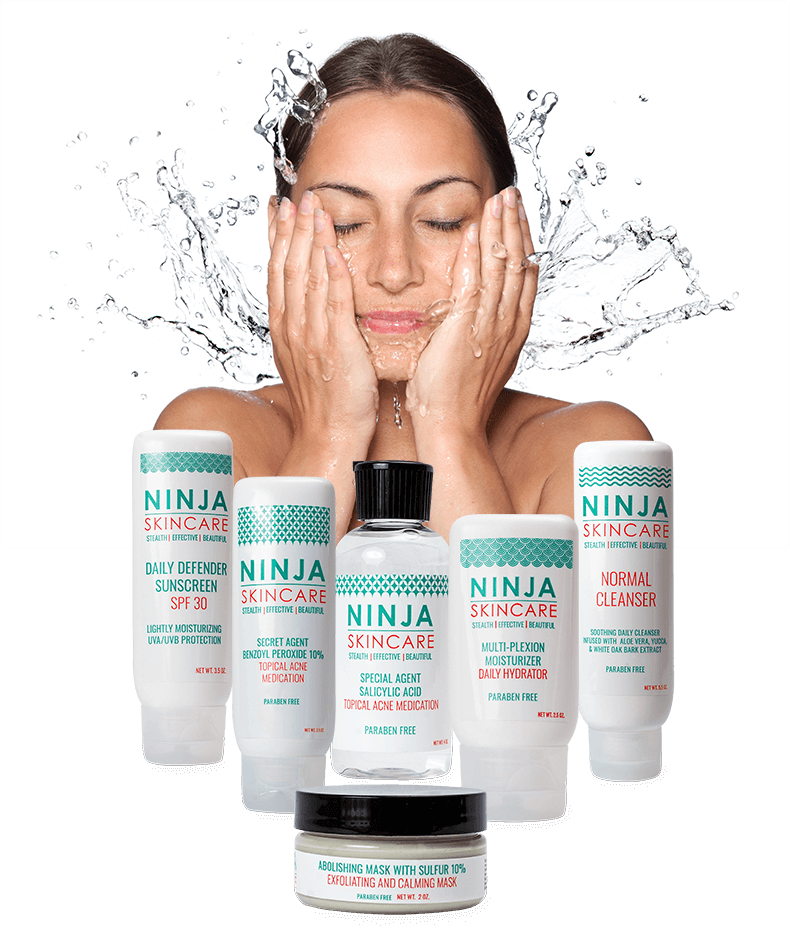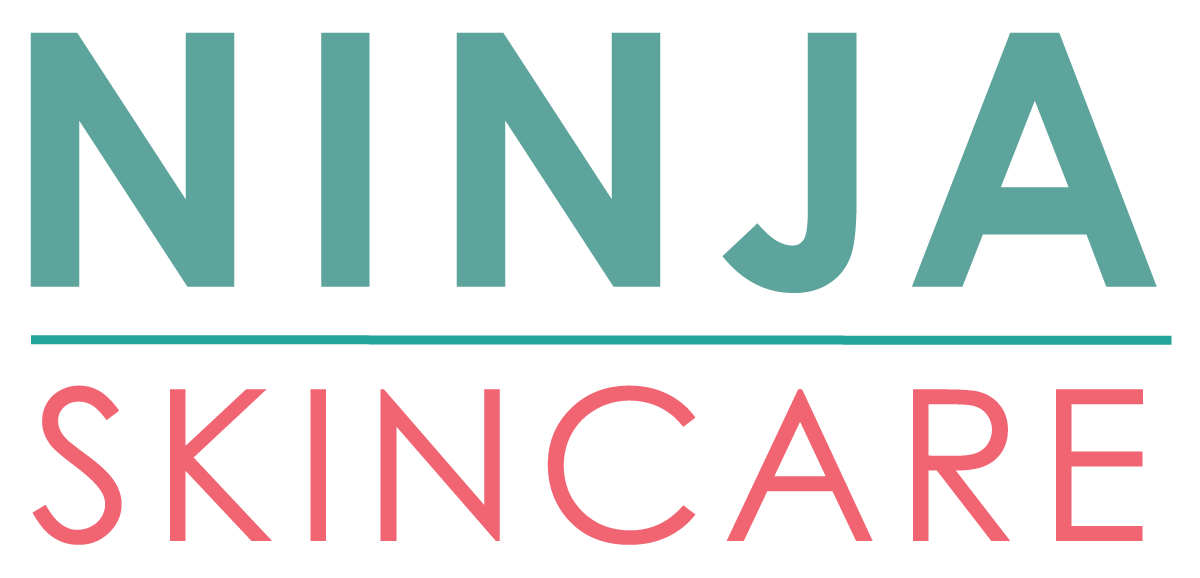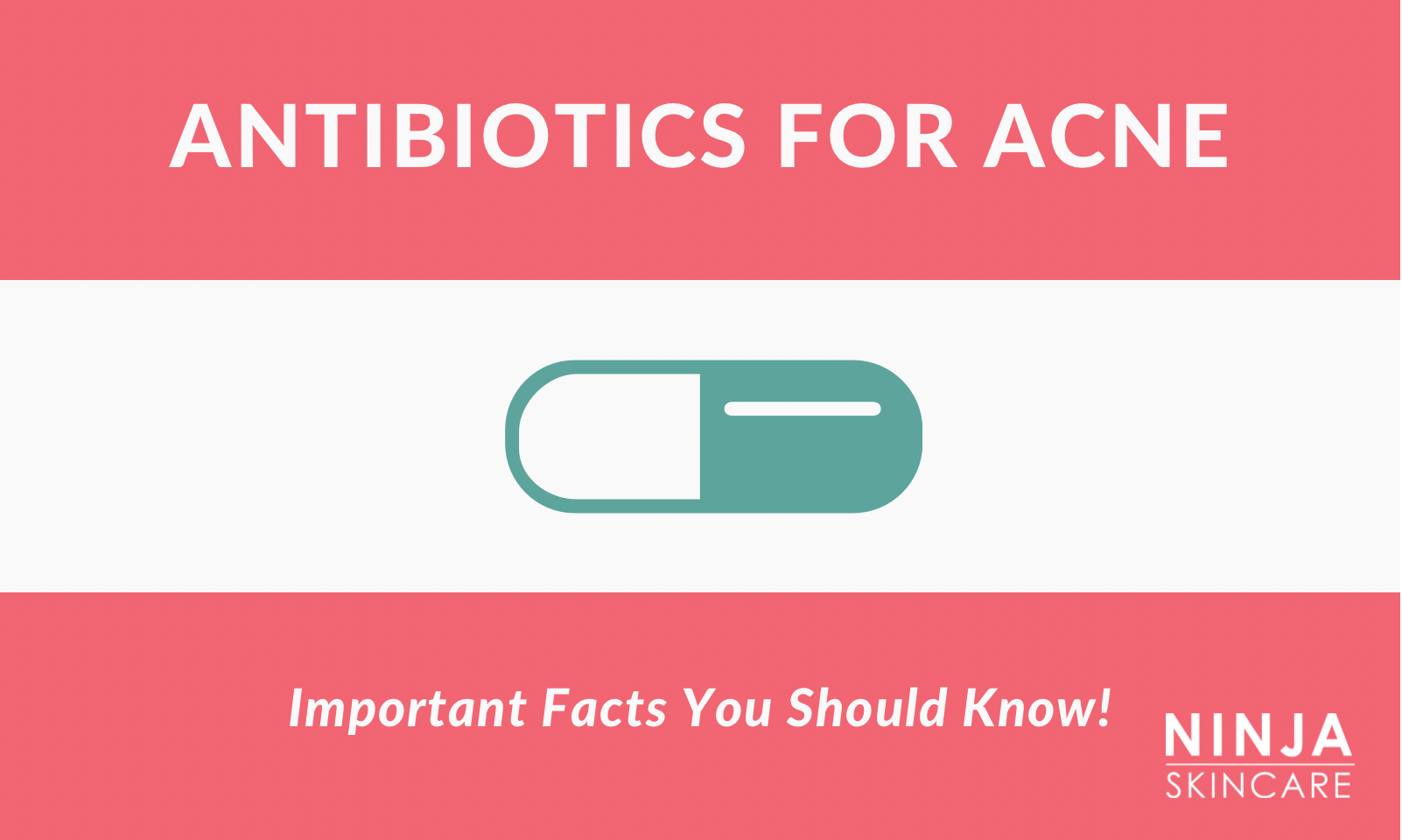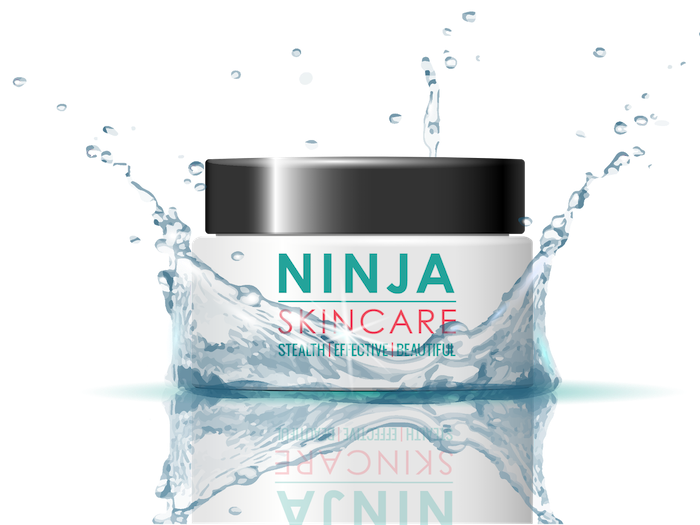Thinking of taking antibiotics for acne? Consider this:
April 1, 2022
If you’re considering taking prescription drugs for acne, keep reading…
My babysitter recently told me she was going to start taking Accutane for her acne. My eyes bulged out and my ego was a little, I’ll admit it, bruised. I mean, after all, I run a skincare company where we focus on preventing acne by using topical medications. Aside from my hurt fee-fees, I deeply care for this young woman. She has been my right hand gal for a long time. I’ve seen her struggle with her skin and, of course, I’ve given her unsolicited advice and countless products in hopes she would use them and use them consistently. Upon hearing her proclamation, I had to take a big gulp and swallow what I really wanted to say, “WHY?!” There are just SO MANY side effects! I felt that being a teenager, she was looking for a quick fix, the easy way out and not considering the real health repercussions this decision may have for her and her body now, and in the long run.
So I swallowed my pride, nodded and responded, “Best of luck!”
Fast forward to now – she is 3 weeks in, her eyes are so dry she can’t leave the house without eye drops, she practically bathes in lip balm and she guzzles water every five minutes. Today she told me her hair is starting to thin out and she has a strange rash going up and down her arms that will not go away. In addition to all of this, she had to sign a contract stating she would not get pregnant and had to go on birth control, even though she isn’t even sexually active. Why? Because Accutane is nearly certain to cause birth defects if a woman conceives while taking it.
We can also talk about antibiotics here too. Many times the first ‘acne’ appointment at a dermatologist will result in an oral antibiotic prescription where they want you to take it for an extended period of time….like months or even years. We’ve all taken a round of antibiotics and been told by our doctors to take the entire dose – all 5 or 7 or 14 days to prevent the bacteria from becoming resistant to the drug. We also know that long-term use of antibiotics exposes bacteria to the drug long enough so that it becomes resistant…so which is it? And don’t we want bacteria that respond to antibiotics so when we really DO get sick, we have a weapon at our disposal? Seems a bit confusing to me, especially since we know it takes at least three or four months for acne to form, so does that mean you need to take antibiotics for at least that long to see a positive effect? And finally, the point of taking antibiotics for acne is to kill bacteria on the skin, but wait!! Doesn’t that mean it’s also killing (good) bacteria in the gut? There are proven gastrointestinal issues for some people who use antibiotics both in the short or long term. Because anti-acne antibiotics are typically broad-spectrum killers, the risk of upsetting the natural biome in the gut is real and may lead to other digestive issues. In some cases, these issues persist long after discontinuing antibiotics.
Now if all of this doesn’t seriously concern you (it does me!), then keep reading, because I have even more reasons for you all to avoid taking drugs for acne.
Remember, acne is not caused from excess oil or out of control bacteria. It is caused by the retention of dead skin cells in the hair follicles. Genetics dictate most of this – so if you’re from a family of acne prone folks, most likely, you, too will retain a portion of your dead skin cells in the hair follicles. The oil our skin produces gets stuck in the layers of dead skin cells, then bacteria move into the hair follicles to break down the oil. Of course, bacteria multiply and our body sends in the troops – white blood cells and heat to kill the bacteria, resulting in a pimple. So, it seems to us, and with over 32 years of proof and thousands of happy clients, the best way to prevent acne is to remove the dead skin cells down in the hair follicles with topical acne medications that are designed to do just that! And of course, washing your skin regularly to remove any excess oil build up as well as not applying clogging oils to avoid exacerbating the problem even further.
But back to the issue of not taking drugs for acne because of possible side effects, some of which will happen when using these drugs. I researched reputable medical journals to compile this list for you:
- Nausea
- Dizziness
- Headaches
- Vomiting/Diarrhea
- Hypersensitivity reactions (pneumonitis, eosinophilic nephritis, serum sickness)
- Intracranial hypertension
- Systemic lupus erythematosus (SLE), autoimmune hepatitis, and polyarteritis nodosa
- Cardiac conduction abnormalities
- Hepatotoxicity
- Pseudomembranous colitis
- Liver dysfunction
This list is pretty comprehensive, but I am leaving some out because I don’t even know what they mean, even though they sound ominous. And I purposely used the medical terms so you can research more if you’re interested.
There is one main side effect I left off that list because it deserves to be highlighted here. The one side effect that would be an easy and obvious deterrent for me, as a parent if my child asked to go on Accutane for their skin. That one side effect is the well-documented occurrence of long term depression in teenagers which has led to suicide for some youth.
Yeah. No. Not in a million years. NO way, never.
Finally, here is the kicker. And one that I know Pamela would personally attest to since she was on oral antibiotics for over 15 years (ages 10-25), ONCE YOU GO OFF OF THEM, YOUR ACNE COMES BACK (and now you know why she started this company in 1989!).
So what is the solution? Stay on them forever? Run the risk of damaging your liver function, becoming depressed or having cardiac abnormalities in your quest for clear skin? Or just stick with a topical treatment that actually works, even though it sucks to have to be diligent and consistent with a skincare routine for the rest of your acne-prone life?
I know what my answer is.
Call/email/text if you or anyone you know wants to clear their skin with NO lasting side effects. We are always here for you.



 Get a ZERO obligation consultation with an acne-fighting Ninja!
Get a ZERO obligation consultation with an acne-fighting Ninja!
